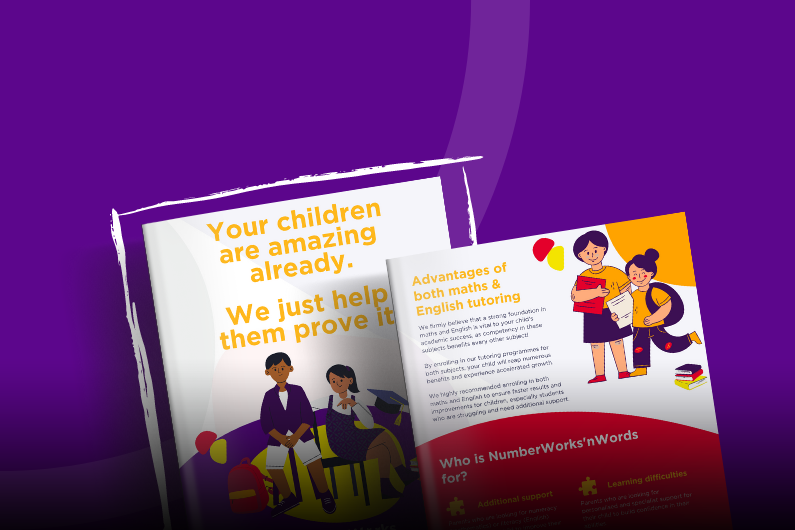Preparing for NAPLAN Testing

NAPLAN, or the National Assessment Program - Literacy and Numeracy, is a nationwide test that assesses students in reading, writing, language conventions, and numeracy. This program was introduced with the primary objective of providing valuable insights into the foundational skills of students at various stages of their academic journey.
NAPLAN is administered annually to children in Years 3, 5, 7, and 9, marking crucial milestones in their academic progression. The inclusion of these specific year levels allows for a systematic assessment that spans a child's academic development from the early years through to adolescence.
By focusing on fundamental skills such as literacy and numeracy, NAPLAN aims to provide a comprehensive overview of a child’s abilities in critical areas that lay the groundwork for success in more advanced subjects and real-world applications.
Preparation in Schools
Significant classroom time is devoted to preparing children for the NAPLAN assessment. This dedicated effort ensures that students are adequately prepared with the skills and knowledge necessary to excel in the evaluated areas.
While NAPLAN is administered in Years 3, 5, 7, and 9, it is important to note that the assessment is not directly connected to the Australian curriculum. The unique positioning of NAPLAN allows it to serve as a valuable supplement to the curriculum. It operates as a complementary tool, offering an insight into a child’s capabilities beyond the scope of the curriculum.
The purpose of the exam is not to assess how well a child can repeat or rehearse class material but rather to provide a snapshot of both your child’s progress and the school’s, in meeting basic numeracy and literacy benchmarks compared to the national average. This approach prioritises the development of analytical thinking, problem-solving abilities, and effective communication—essential skills for success in both academia and the broader spectrum of life.
What exam questions are in the NAPLAN test?
For parents undergoing NAPLAN testing for the first time, it can raise many questions, anxieties, or concerns. To alleviate anxiety, parents can familiarise themselves and their children with practice test questions covering Language Conventions, Writing Prompts, Reading, and Numeracy.
- Language Conventions
- Sample Writing Prompt
- Reading Magazine
- Example Reading Test
- Example Numeracy Test
The goal should be to put the child’s mind at ease, not to create additional academic pressure. Cramming, for a NAPLAN test may only increase your child’s anxiety regarding academic performance.
Will my child need to prepare?
While the instinct for most parents is to help their child prepare for NAPLAN, there is no way one way to prepare to ‘pass’ the assessment. NAPLAN tests are designed to assess a child’s basic literacy and numeracy skills as they progress throughout school.
Rather than honing in on specific exam preparation techniques, cultivate a supportive learning environment at home consistently throughout the year. Encourage your child to complete their homework diligently, integrate engaging numeracy and literacy activities into your daily routine, and consider seeking additional help, such as NAPLAN tutoring with NumberWorks’nWords.
It is crucial to bear in mind that NAPLAN should not be perceived as the exclusive measure of your child's academic abilities. While the assessment provides valuable insights, a more comprehensive understanding of your child's capabilities can be achieved by considering their progress across various subjects and learning experiences.
How to understand NAPLAN Reports
Results in each area are meticulously assessed using common assessment scales, providing a comprehensive overview of the student's proficiency in each specific area. This insight serves as a valuable tool for understanding your child's strengths and areas for improvement.
The results range for the middle 60% of students, the national average result, and the national minimum standard for each year level. Certain states and territories incorporate the school average into the results report as well.
This breakdown allows for a thorough comparison, enabling you to gauge your child’s performance against both the national average and the minimum standard for their respective year level.
If you are concerned about your child’s NAPLAN results or your child’s current progress in class, get in touch with us. Receiving results that fall below expectations can understandably be a source of worry for both children and parents. By seeking additional support, we can collaboratively address any challenges your child may be facing.
A Glimpse into Nationwide Trends
A recent study found that almost one-third of NSW students failed to meet proficiency standards in reading, writing, and maths, reflecting a nationwide trend.
Approximately one-third of students scored in the lower two proficiency bands for literacy and numeracy, indicating a need for improvement. Across the country, 9.8% of children require extra assistance, emphasising the importance of addressing academic challenges early.
How does a pass or fail work?
NAPLAN is not a pass-or-fail exam. It provides a benchmark of where your child sits against the national average. The results are classified into one of 4 proficiency levels:
- Exceeding
- Strong
- Developing
- Needs Additional Support
NAPLAN results should always be interpreted with care. If concerns arise about your child's results or overall progress, have a chat with the team at NumberWorks’nWords and we can help you.
What if my child is underperforming?
Don’t panic. Instead, acknowledge your child's efforts and strengths, and offer them support and encouragement. Let them know that you're proud of them regardless of their score and that you're here to help them improve their skills and reach their goals.
Whilst it is natural to be concerned it is also important to remember that NAPLAN is just one test, and it doesn't define your child's intelligence, capabilities, or potential.
The next step is to understand your child's strengths and weaknesses in the different areas of NAPLAN. You can do this by reviewing their test results, talking to their teachers about their performance, or booking a free assessment with the NumberWorks’nWords team. This assessment can help you identify which areas your child needs to focus on, and which areas they are excelling in.
Why our NAPLAN programs are more effective than practice alone
If your child is lacking essential skills or grappling with question structures, simply practising numerous questions may not lead them to the correct answers. What they might require is personalised assistance—someone who can address their questions and clarify concepts at their own pace.
At NumberWorks’nWords, our experienced team has crafted programs tailored to offer children the necessary support for NAPLAN tests. Our programs aim to enhance your child's numeracy and literacy skills by reinforcing their foundational knowledge, and prioritising understanding over mere memorisation.
If a student encounters challenges with a particular topic, our tutors can refine their program to ensure thorough comprehension is achieved.
Through access to practice tests and past papers, our NAPLAN students refine their literacy and numeracy skills, concentrating on specific areas that demand additional attention.



